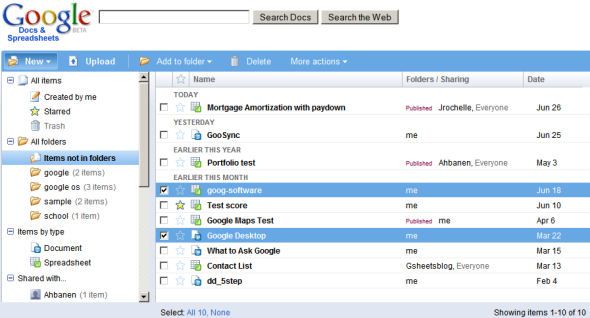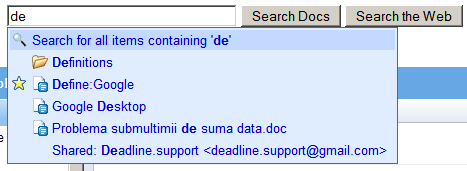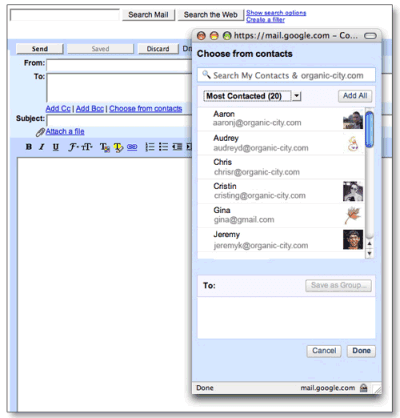New York Times has an article about search engines that allow people to rate, review or even edit search results. Even if the major search engines take into account the links from sites and use them as votes, these social search engines use explicit user voting.
"A growing number of entrepreneurs are placing their bets, however, on a hybrid system that puts humans back into the search equation. They are grouped under a newly coined rubric,
social search, and it is becoming a crowded field. Newcomers like
Squidoo,
Sproose and
NosyJoe offer search results based on submissions or votes by users.
Bessed also relies on users to suggest the best Web pages for a topic, but then has editors refine them."
The article also mentions
Mahalo, a search engine hand-built by editors. "Mahalo is the world's first human-powered search engine powered by an enthusiastic and energetic group of Guides. Our Guides spend their days searching, filtering out spam, and hand-crafting the best search results possible," explains their FAQ. The site shows results mostly for popular queries like
Paris Hilton or
Google and their goal is to hand-write the most popular 10,000 search terms, although it's unclear who defines that list. Even if their links are very good and well organized, it's hard to beat Wikipedia's pages, which are much more content-rich and extremely up-to-date, at least for popular topics.
In fact, Jimmy Wales, the founder of Wikipedia,
plans to launch a search engine that allows people to edit the results. What's more, Mr. Wales says the search engine will be open source. "Essentially, if you consider one of the basic tasks of a search engine, it is to make a decision: 'this page is good, this page sucks'. Computers are notoriously bad at making such judgments, so algorithmic search has to go about it in a roundabout way. But we have a really great method for doing that ourselves. We just look at the page. It usually only takes a second to figure out if the page is good, so the key here is building a community of trust that can do that."
Google tried to add explicit feedback using
Google Toolbar's voting buttons and
a link that let you remove pages or entire sites from your search results, but the results weren't that good. In a recent talk, Peter Norvig said that people mostly used the voting buttons to express negative opinions about pages.
For the moment, the only ways to tell Google you don't think a page is relevant to the query is to click on "Dissatisfied? Help us improve" at the bottom of the page or to simply ignore the page (by clicking on the second search result first, Google records that the first results wasn't relevant to you).
Yahoo also
experimented with social features added next to the search results, but they were removed. Maybe a Digg approach to search introduces more bias and makes it easier to promote spam pages. After all, people are less predictable than algorithms and more difficult to control.
















